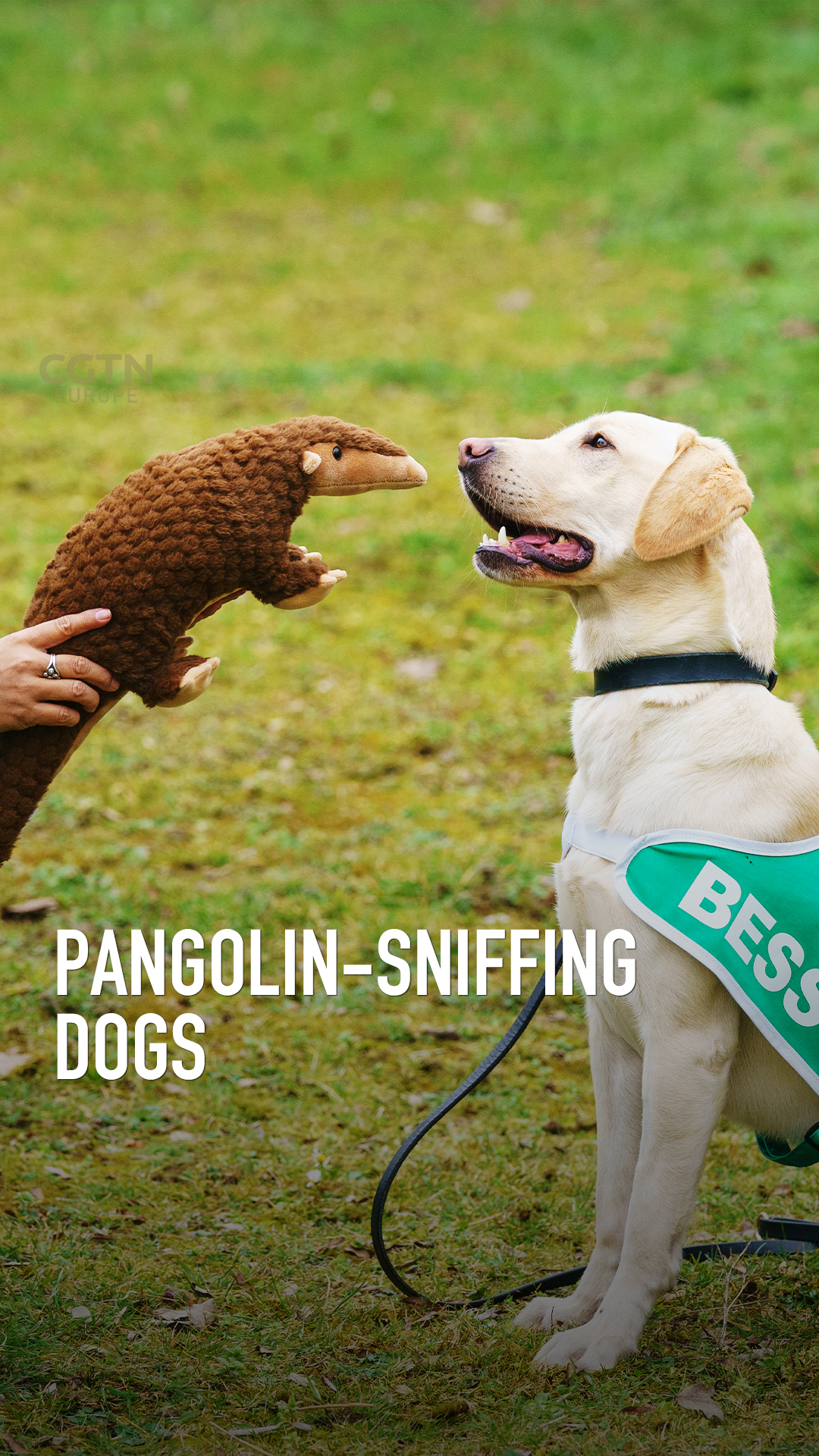00:49

Two crime-fighting canines being deployed to fight the illegal wildlife trade in Thailand met their new conservation colleagues at Zoological Society of London's (ZSL) London Zoo headquarters on Thursday.
The dog duo of Buster and Bess are preparing to join the conservation charity's team of experts protecting the critically endangered pangolin in Thailand.
The pangolin-saving labradors recently graduated from a training programme with the Metropolitan Police and will fly to Thailand in April to officially become part of the ZSL team – working alongside conservationists, border force operatives and in-country law-enforcement.
READ MORE
Could insect burgers wean meat lovers off beef?
Saving the world's most endangered cat
Bullfighting: Barbaric or iconic?
"Protecting species is a core priority for ZSL, so we were excited to welcome Buster and Bess to ZSL headquarters today, to meet some of their new colleagues and showcase their newfound skills – before they jet off to start their new life sniffing out wildlife crime and protecting pangolins," explained ZSL Pangolin Technical Specialist Georgina Gerard.

Two labradors, Buster and Bess, have been trained to sniff out and save pangolins being smuggled in Thailand. /ZSL
Two labradors, Buster and Bess, have been trained to sniff out and save pangolins being smuggled in Thailand. /ZSL
During their visit to ZSL's conservation zoo, Buster and Bess, who passed their police dog sniffer training with flying colours, shook paws with Georgina and ZSL Thailand Country Manager, May Moe Wah, showed off their expert detection skills, visited the zoo's Humboldt penguin colony and were presented with cuddly pangolin plushies for their travels.
The pair will complete their training in Thailand, where the scents they've been training with will be mixed with pangolin scales until they come to associate the two – and then learn to recognize the scent of vulnerable pangolins alone.
Once up to speed, Buster and Bess will work with expert handlers from the local community – sniffing out live pangolins being smuggled via airports, ports and roads, so that they can be rescued and released back into the wild.
All eight species of pangolin are on the IUCN Red List of Threatened Species and considered threatened with extinction. Although a total ban on commercial trade in pangolins was introduced in 2017, the world's only scaly mammal is victim to highly unsustainable levels of poaching and illegal trade for their meat, scales and other body parts – with 200,000 pangolins believed to be trafficked every year.

The dogs have undergone training to help them sniff out the scent of pangolins at airports, ports and roads. /ZSL
The dogs have undergone training to help them sniff out the scent of pangolins at airports, ports and roads. /ZSL
Explaining why Buster and Bess will be such invaluable members of the team, ZSL Law Enforcement Specialist Grant Miller said: "Intelligence has been telling us that live pangolins are being trafficked all across Thailand – mainly by road. Some vehicles even have purpose-built concealed areas to transport the Critically Endangered species. The question was, how to stop it.
"Before joining ZSL, I worked at UK Border Force, so I have first-hand knowledge of how effective these dogs can be in helping to deter and detect smuggling – they're as highly trained as Olympic athletes, so we know they'll be perfect for the job."
Led by ZSL, the crime-fighting venture is a collaboration with the MET Police and United for Wildlife and is made possible through funding from the Critical Ecosystem Partnership Fund and DP World, with the deployment of Buster and Bess in Thailand following on from ZSL's previous work introducing sniffer dog units to hotspots for illegal wildlife trade in Mongolia.
Subscribe to Storyboard: A weekly newsletter bringing you the best of CGTN every Friday